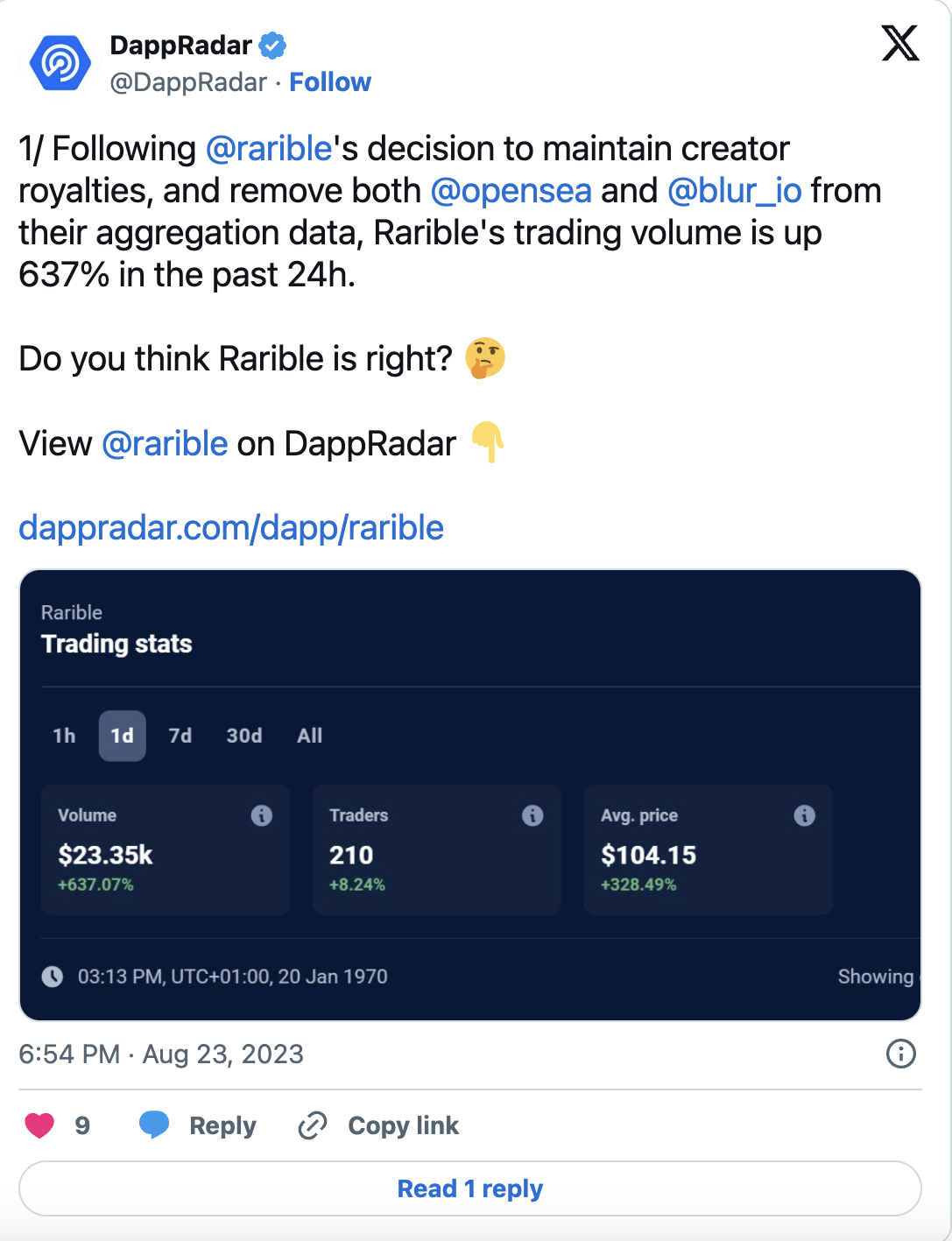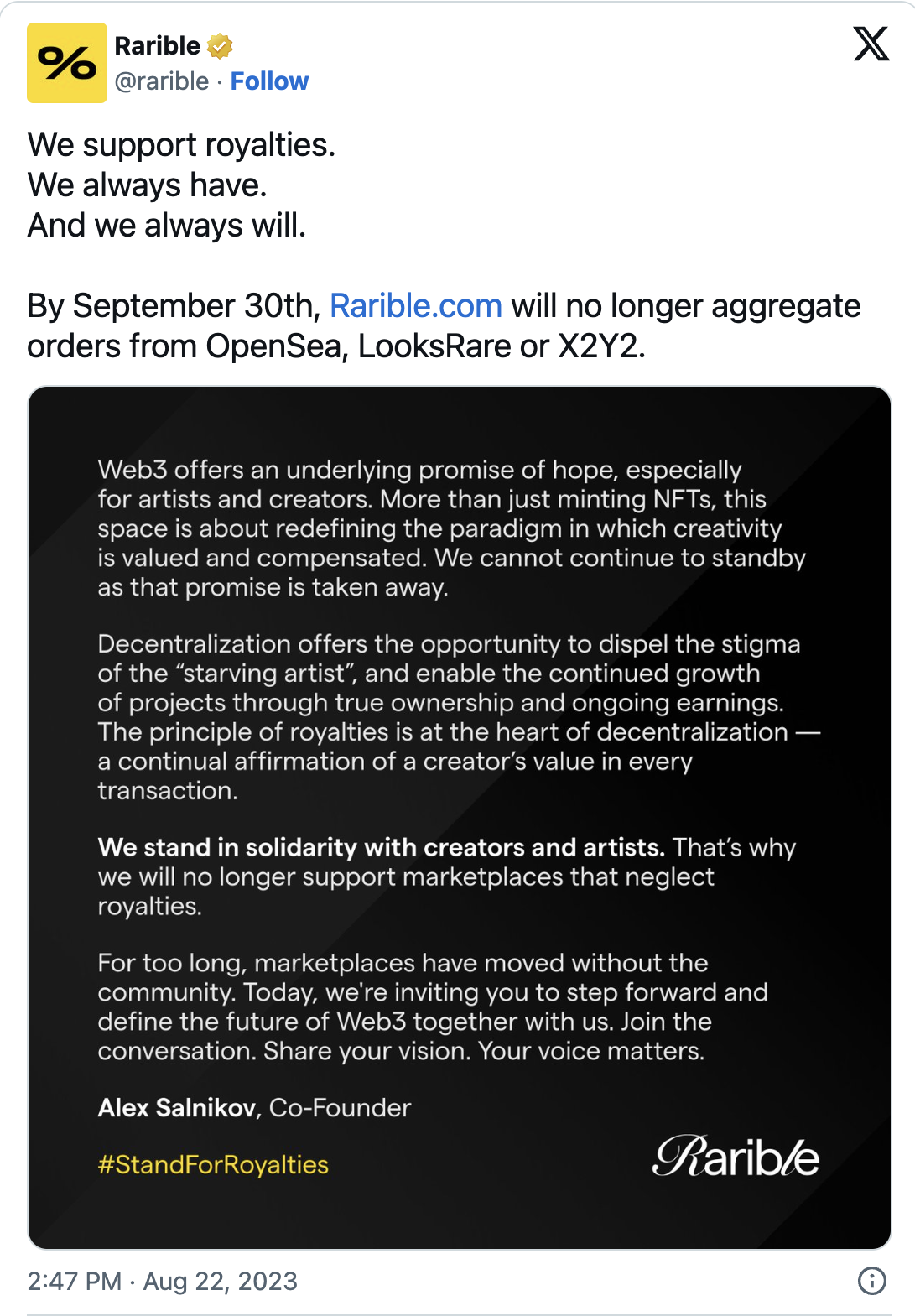The NFT market Rarible skilled a major improve in buying and selling quantity inside 24 hours after a public assertion supporting the safety of copyright charges for NFT collectors. The co-founder of Rarible emphasised the significance of copyright and introduced that they’d not settle for orders from platforms reminiscent of OpenSea, LooksRare, and X2Y2, stating their intention to protect the worth of creativity.
585% Enhance in Buying and selling Quantity
The withdrawal of assist from rival NFT marketplaces like OpenSea for copyright and copyright enforcement has led different NFT initiatives to withdraw their assist for OpenSea. Information from the blockchain knowledge evaluation platform DappRadar exhibits that the 24-hour fiat buying and selling quantity on Rarible elevated by roughly 585% to over $45,000 on August 23.

Though the figures are small in comparison with their rivals throughout the identical interval, Rarible’s quantity improve surpassed OpenSea and LooksRare, which skilled a lower in buying and selling quantity of roughly 19% and 74% respectively, inside 24 hours. X2Y2 noticed an 8.8% quantity improve throughout this time.
Lowest Ranges within the Final Two Years
Rarible’s quantity improve got here after co-founder Alex Salnikov introduced on August 22 that they’d not assist markets that neglect copyright and that they’d not settle for orders from OpenSea, LooksRare, or X2Y2 from September 30 onwards. Salnikov stated, “This area is about redefining the paradigm the place creativity is valued and rewarded. We can’t proceed to attend when this promise is taken away from us.”

In February, OpenSea acknowledged dropping floor to Blur, one other widespread NFT market that doesn’t implement copyright for content material creators, by abandoning the enforcement of copyright for NFT content material creators. On August 17, OpenSea introduced that it might shut the copyright enforcement device that permits content material creators to blacklist marketplaces that don’t implement copyright as a result of lack of adoption.
In the meantime, in response to July knowledge from evaluation agency Nansen, the copyright charges earned by Ethereum-based NFT initiatives reached the bottom stage within the final two years.







